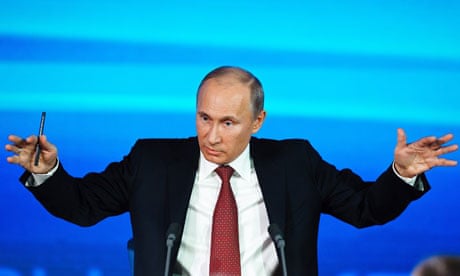The carefully nurtured financial ties between Russia and Cyprus were close to snapping on Tuesday night as officials congregated in Moscow to discuss last-ditch methods of saving the bankrupt country.
After a proposed levy on bank deposits was rejected by the Cypriot parliament, Michael Sarris, Cyprus's finance minister, who had tendered his resignation only for the island's president to reject it, flew to Russia for frantic talks. The Russian government had expressed outrage at the European Union's proposed levy on Cypriot bank depositors, arguing it would hit Russian individuals and businesses.
The plan was described by Vladimir Chizhov, Russia's envoy to the EU, who is also in the Russian capital, as "similar to forceful expropriation … The principle … is wrong".
The small EU country is by far the largest investor in Russia and accounts for almost half of all foreign investments.
According to Russian state statistics agency Rosstat, Cyprus-based businesses invested $78.2bn (£52bn) in Russia in 2011 alone. That is almost four times Cyprus's €17bn gross domestic product.
The suggestion from eurozone leaders, particularly in Germany, is that a significant proportion of the Russian funds flowing through Cypriot bank accounts – which account for about 22% of the cash in the system – are simply being laundered.
Cash allegedly flows from Russia to Cyprus and then back again in the form of investments – which is why EU officials insisted that the Cyprus government impose the levy on deposits in the banks.
The island is also seeking an extension to a €2.5bn loan it received from Russia in 2011, which expires in 2016.
It remains unclear how Russia could assist Cyprus – and defeat the EU plan – without increasing the island's debt burden to unsustainable levels. Additional Russian involvement might also push the EU and International Monetary Fund to withdraw their €10bn bailout proposal.
Steve Keen, professor of economics and finance at the University of Western Sydney, told CNBC that Russia could retaliate against the EU if the deposits of its citizens remain targeted for a levy. "If you try to target the Russians, and there's President Putin acting under the image of the strongman of Russia, why would he not then decide to shut down gas supplies to Germany until that was righted?"
He said European leaders should be clear about what they are trying to do: "If you're going to attack money laundering then attack it directly, don't make Cypriot peasants and small businessmen collateral in your campaign against Russian oligarchs. Declare the campaign rather than doing it under the carpet like this."
He added that Putin might be prepared to escalate the issue and use Russia's largest state-owned gas firm, Gazprom, to reduce gas supplies to Europe, as it did in 2009 during a dispute with a Ukrainian energy company.
